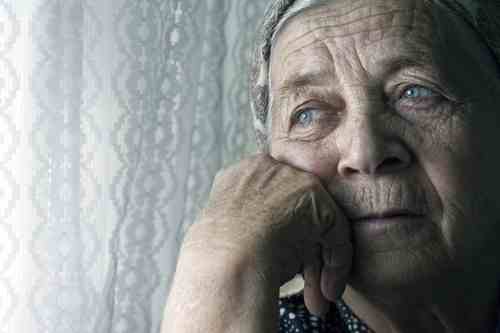Aisling McGuire reports back from a fascinating discussion as part of Just Festival’s conversation series…
Jonny Kinross from the Grassmarket Community Project chairs this worryingly relevant discussion, based on the recent Scottish Government findings that feelings of social isolation are on the rise and are having, in many cases, catastrophic results.
The panellists for the evening are Brian Sloan from Age Scotland, Sara Maitland, author of How to be Alone, John Mason MSP and Trudi Collier from the Lothian Deaf Counselling Service and if any more evidence was needed about how important this topic is the organisers had to hurriedly put out more chairs as people continued to pour in to hear what they had to say.
Brian Sloan was first to take the floor, highlighting that it is important to recognise you can be isolated and not necessarily be lonely just as you can be lonely while surrounded by people. The panellists and audience come back to support this point many times throughout the evening; some people actively choose to be alone and revel in their isolation. The problems, or curse, of social isolation happens when it is foisted upon the person through no choice of their own.
Sara Maitland is quick to back-up how important this is, worrying that as a society we discourage people being alone through the negative connotations of the word “isolation”. She questions whether the younger generation have lost the ability to be alone and asks whether this is something schools should be teaching.
Chairman Kinross is keen to point out the good work that schools and teachers do on a daily basis but asks what more can be done. The transition stages from nursery to primary school and then from primary school to secondary school are well resourced, planned and implemented and the importance of these key transition stages are plain to see for all involved but what happens when the pupils leave schools and head off to university or college? Is the transition system there as robust?
The panellists talk at length about the old and there is no denying that social isolation is prevalent in that particular age bracket but I couldn’t help feeling all evening that they were missing the point – this is not a problem which pervades a particular demographic; it is a trend which is seeping into every corner of society and we must not forget that anyone can be suffering.
John Mason MSP speaks about “old folks” homes and how it is bizarre that we should put 60-100 vulnerable people in the same place with little thought of the problems of isolation. Everyone agrees, but is this not exactly what happens at university when a group of young people, fresh from a fully structured working week at school are thrust into an environment where they are expected to fill their own days and live completely independently?
Trudi Collier has experiences on both sides of this coin. Herself a deaf person, she tells us candidly how the difficulty connecting takes the choice away from being alone and that this is a problem not only faced by those in the deaf community but by anyone who is a minority.
Collier’s words bring to the foreground that this is a collective societal issue and will only grow unless we look at active solutions.
At this point in proceedings questions and comments are invited from the floor and the idea of community building is presented. In years gone by everyone knew everyone on their street; now, you are lucky if you know your next door neighbour. Of course this is not the case in small villages where, although they may be isolated geographically, perhaps the community spirit they hold onto prevents the curse of social isolation being so widespread. There are also fewer people going to church, where communities used to be built, and young people are less active preferring to lose themselves in the latest game or television programme than join the local hockey or swimming club.
Mason talks about his own passion – football – and how, despite the negative press it often receives, this is a great way of building a community of friendships although again, the support (particularly of smaller clubs) is waning.
It is a fascinating discussion and there is just not enough time to explore how we can lessen the problem but everybody leaves agreeing on one thing: if isolation is not a choice, it is not okay.
